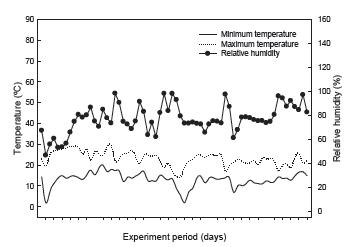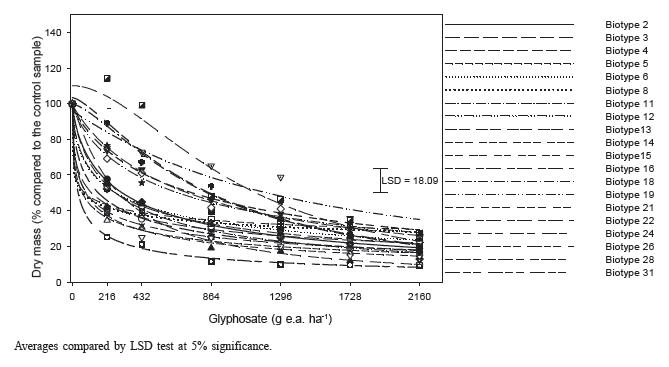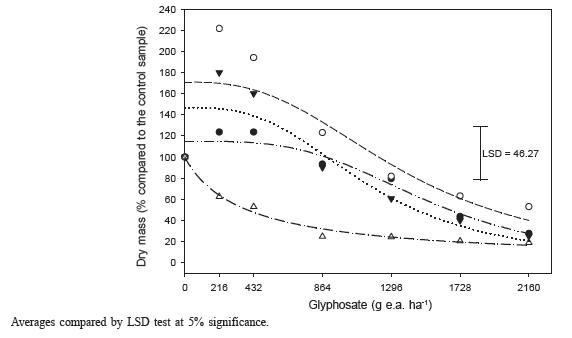ABSTRACT
Tolerance, also referred to as natural resistance, is a feature that exists in the plant even before herbicide application in an area. I. grandifolia, I. indivisa and I. purpurea are among the tolerant species most commonly found over fields in southern Brazil. We hypothesized that the intensive use of glyphosate results in increasing levels of tolerance to glyphosate, and in pronounced response variability in populations of the same Ipomoea species. This study aimed at identifying tolerance variations to glyphosate among I. grandifolia, I.indivisa and I. purpurea morning glory species and among populations of these species. In crops over Paraná and Santa Catarina states (Brazil) 31 biotypes were collected (20I. grandifolia, 7I.indivisa and 4I. purpurea), on which were applied 0, 216, 432, 864, 1,296, 1,728 and 2,160 g a.e. ha-1 of glyphosate and the dose required to reduce 50% of dry matter (GR50) was determined. Biotypes of all tested Ipomoea species showed variability of glyphosate tolerance. Tolerance factors had greater amplitude among biotypes of I. gradifolia and I. indivisa species (between 1.7 and 33.6 and between 3.3 and 34.2, respectively) than in I. purpurea (between 3.7 and 4.9). Especially within I. gradifolia e I. indivisa species, some biotypes required a much higher dose than the recommended one to control the wild biotype, indicating progress in the level of glyphosate tolerance; this proves the initial hypothesis of this work.
Keywords:
tolerance; Ipomoea grandifolia; Ipomoea indivisa; Ipomoea purpurea; control; dose-response




